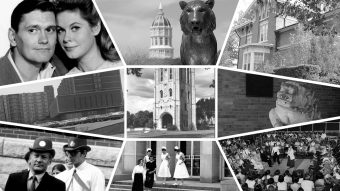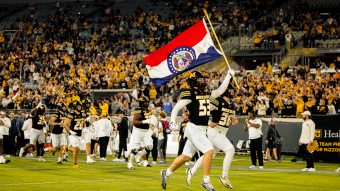
You could tell a lot about Tim Kaine, BA ’79, from the books he kept on his college nightstand. The beat-up piece of furniture held similarly tattered volumes of poetry, fiction and philosophy, all in various states of completion. No margin was safe from his notes, no text from his underlines.
Two of the books he read stand out to Katy Tracy, BA ’81, who dated the future governor, U.S. Senator and vice presidential nominee during and after his time at Mizzou. One is The Moviegoer, by Walker Percy. It’s about a man’s spiritual journey, but instead of seeking spiritual connection through an ecstatic experience, the man seeks it through meeting, talking with and understanding people.
The other book is Let Us Now Praise Famous Men, written by reporter James Agee and photojournalist Walker Evans. They lived with and documented the lives of three tenant-farming families in the Deep South during the Great Depression.
Kaine took personally the books’ common message — “Stop being steeped in your own point of view and build relationships and listen to other people" — Tracy says. "Which, to me, is this beautiful metaphor for how Tim has tried to live his life.”
Mizzou gave Kaine an opportunity to put those ideas into practice.
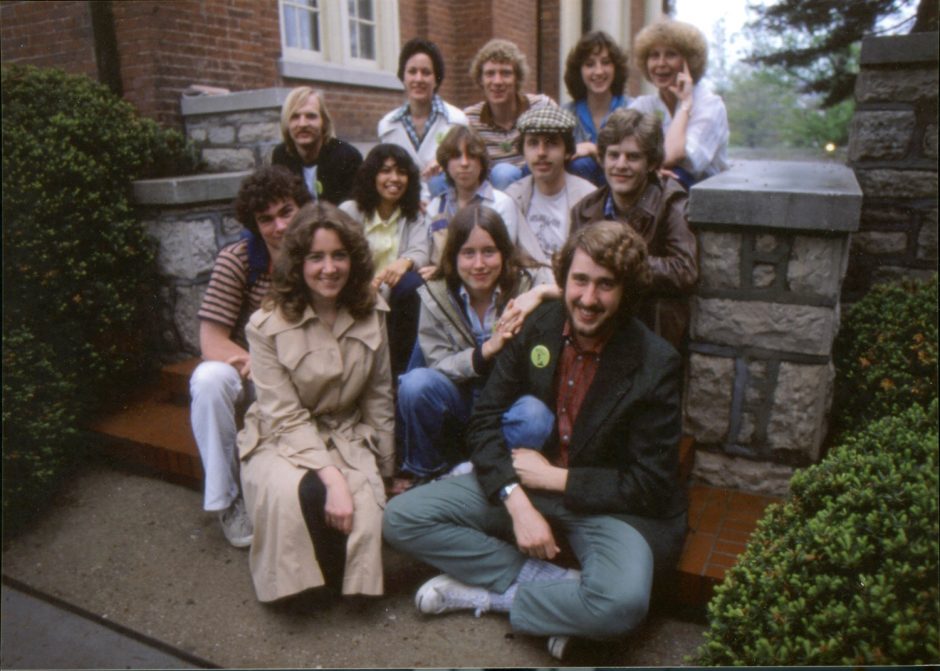
In recent phone interview with Mizzou, Kaine credited his college experience with “broadening me out of my social milieu." He had an African-American, Army brat roommate. He volunteered at the Newman Center on campus and in Columbia with Big Brothers Big Sisters.
Kaine always enjoyed helping people — he credits his parents and his Jesuit education for that — but “Mizzou was the place where I was really with a group of people who were not all like me,” he says.
That has proved to be a valuable skill as a politician in a state made up of high-tech executives, fishermen and sailors.
Mizzou Made
Tracy always knew Kaine to be a “profoundly moral” person. He had already done a missionary trip to Honduras while at his Jesuit high school in Kansas City. Mizzou gave further, practical shape to that morality.
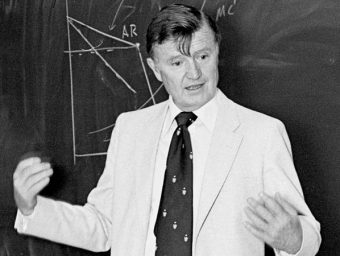
Kaine sat down for the first day of class freshman year in Econ 51, and Professor John Kuhlman said something that he never forgot. Twenty-two years later, as a newly elected city councilman in Richmond, Virginia, Kaine reminded his former mentor of his words.
Kaine wrote in an email that, while he remembered little of the class material, he remembered vividly Kuhlman’s explanation of his strict attendance policy. “ ‘UMC is a state school. Part of the cost of you being here is being paid by taxes from people all around the state, many of whom will never go to college and might not be able to send their kids to college. You owe it to them to be serious about your studies.’ ” Kaine wrote, quoting Kuhlman. “That statement, and the moral sense that it conveyed, made a significant impact on me.”
That one class inspired Kaine to change his major from journalism — which he found to be too cynical in practice — to economics.
Kuhlman, now a professor emeritus of economics, also inspired Kaine in his graduate work.
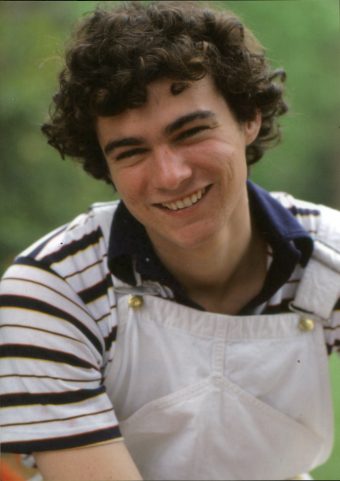
As a senior, Kaine was applying to law schools, and he asked Kuhlman for a letter of recommendation. He was sitting in the professor’s office one day when Kuhlman asked him which schools he was considering.
Mizzou, Kansas and the University of Missouri–Kansas City, he replied. Kaine didn’t have any friends or relatives who were lawyers to guide him; he chose those three because they were good law schools that were close to home.
Kaine remembers Kuhlman looking puzzled. “What’s your GPA?” he said.
Kaine told him.
“Why aren’t you applying at Harvard, Yale, Berkley or the University of Chicago?” Kuhlman asked. “With your background and your academic record, you should be applying to the best law schools in the country.”
Kaine hadn’t even considered it. “Had he not said that, I would not have expanded my horizons in terms of where I would go,” he says.
Kaine’s experience at Harvard Law School shaped the rest of his personal and professional life. It’s where he met his wife, who is why he moved to Virginia, which is where he has made his political ascent. And it almost didn’t happen.
Man of the people
Kaine graduated from Mizzou in only three years. But his sincerity, friendliness and intellect made lasting impressions on his peers and professors.
He was best friend to David Roloff, BES ’78, MA ’85, during his last two years in Columbia. Roloff still counts his conversations with Kaine as among the deepest of his life.
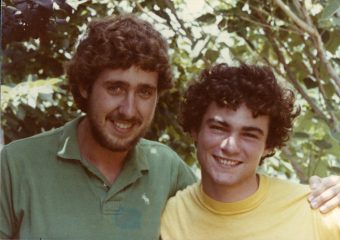
“He was one of those people on campus you saw around a lot but was unassuming,” says Roloff, referring to Kaine’s involvement in student organizations. Kaine’s motivation wasn’t to make a name for himself, Roloff says. “He was there to help people.”
Marc Levinson, BA ’79, met Kaine when they were both Summer Welcome leaders. The two also competed together in the campus “name that tune” competition. One year they reached the final round. “He knew his stuff,” Levinson says, referring to more than just pop music. “You could tell even then that he had a bright future ahead of him.”
Marjory Hicks also thought Kaine had a good future, though she never expected it would be so newsworthy.
Hicks is a friend of Kaine’s mother. The two were sorority sisters at Kansas State University. She and her late husband, Whitney Hicks, an economics professor at Mizzou from 1965 to 2000, looked after Kaine while he was a student, occasionally having him over for Sunday dinner.
Hicks remembers Kaine as a bright, thoughtful young man. She has kept up with him over the years through his mother. She wasn’t surprised when he took a year off of law school to do missionary work in Honduras, when he became a civil rights attorney or when he entered politics. “I think he just was that kind of person,” Hicks says. “He wanted to do something bigger than himself.”
Tiger reunion
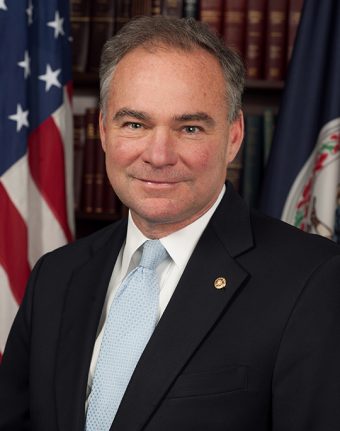
Kaine lost his bid to be the U.S. vice president when he and presidential nominee Hillary Clinton were defeated Nov. 8.
The campaign provided one highlight moment for Kuhlman, who is retired in North Carolina, which was a swing state in the election. The Donald Trump and Clinton campaigns crisscrossed the Tar Heel state, and Kuhlman, at age 93 and mostly deaf, made it out to a Kaine rally in nearby Asheville.
Kuhlman has kept all the student correspondence he has received over the years, but the three letters that Kaine has sent him hold a special place in the professor’s heart. All he wanted to do was shake his former student’s hand and share the letters with him.
He held copies of them as he rode with his wife, Dorothy, to the campaign event.
The venue was crowded with people. He was shuffled into a room with donors and politicians, all jockeying for a picture with the candidate. “I don’t want to have my picture taken,” Kuhlman said. “That’s not why I’m here.”
Eventually, Kaine entered and started working the room. Kuhlman gripped his letters tighter.
“I found myself face-to-face with him,” Kuhlman says, his voice breaking.
“I said, ‘Tim, do you know me?’ He said, ‘Yes, you are John Kuhlman.’ I teared up right then.”
The men embraced and took three pictures together. Then the crowd pulled them apart.
“I still choke up when I think about it. After 40 years, he knew who I was.”
